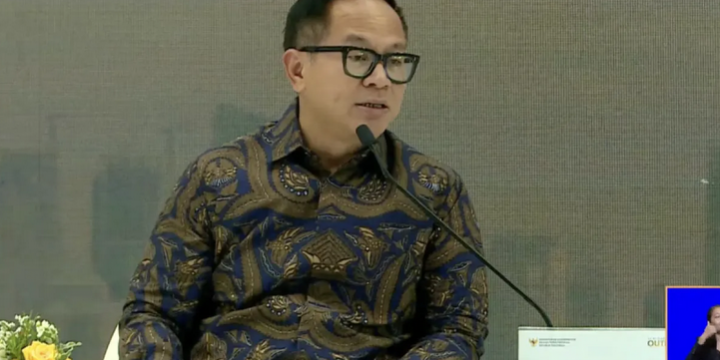Jakarta (ANTARA) – Deputy State-Owned Enterprises (SOEs) Minister, Kartika Wirjoatmodjo, said that Indonesia’s economic policy in 2024 is heading towards pro-growth, from maintaining recovery stability.
“In future, we are heading towards a pro-growth economic policy to encourage investment and provide sufficient liquidity to the market,” he stated at the National Economic Outlook Seminar in Jakarta on Friday.
Wirjoatmodjo highlighted that over the course of the past two years, economic growth was driven by the export approach of several commodities, including nickel and crude palm oil (CPO). However, commodity prices began to fall this year. Hence, Indonesia needs to switch to other engines of economic growth, namely household consumption and investment.
According to the deputy minister, boosting household consumption could be accelerated by strengthening micro, small, and medium enterprises (MSMEs) that open more than 90 percent of jobs and dominate business types by up to 65 percent.
“Strengthening the e-commerce ecosystem, trading ecosystem, and agricultural ecosystem can support efforts to improve MSMEs’ quality, both through the supply side and the demand side, including financing. We need to support our MSMEs to level up their quality, increase people’s purchasing power, and stimulate higher household consumption that is growing faster,” he remarked.
In addition, he emphasized that people from the lower-middle-income group should always be supported through social assistance programs.
To make investment as a driving force for economic growth, the deputy minister stated that commodities in the mineral and coal sector, such as nickel, bauxite, and aluminum, will be the major engines for investment growth.
Efforts to re-ignite the manufacturing sector, especially labor-intensive programs, should also not be forgotten, as Indonesia needs extensive job opportunities, he stressed.
“We also need an investment program to improve labor-intensive manufacturing industries and focus on high-end manufacturing industries as well, such as producing batteries for electric vehicles and the derivative,” he stated.
Wirjoatmodjo noted that the ministry has mapped out several ecosystems that can become engines for the next lead to realize economic growth of six percent, with stability for the next five years.
Source: antaranews.com
Disclaimer
This article may contain copyrighted material, the use of which may not have been pre-authorized by the copyright owner. This material is made available for the purpose of giving information and knowledge. The material contained on the Astra Agro website distributed without profit. If you are interested in using copyrighted material from this material for any reason that goes beyond ‘fair use’, you must first obtain permission from the original source.










